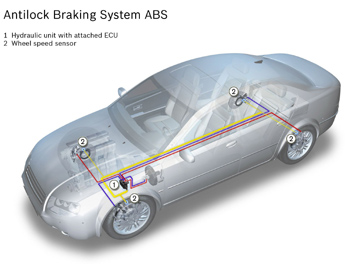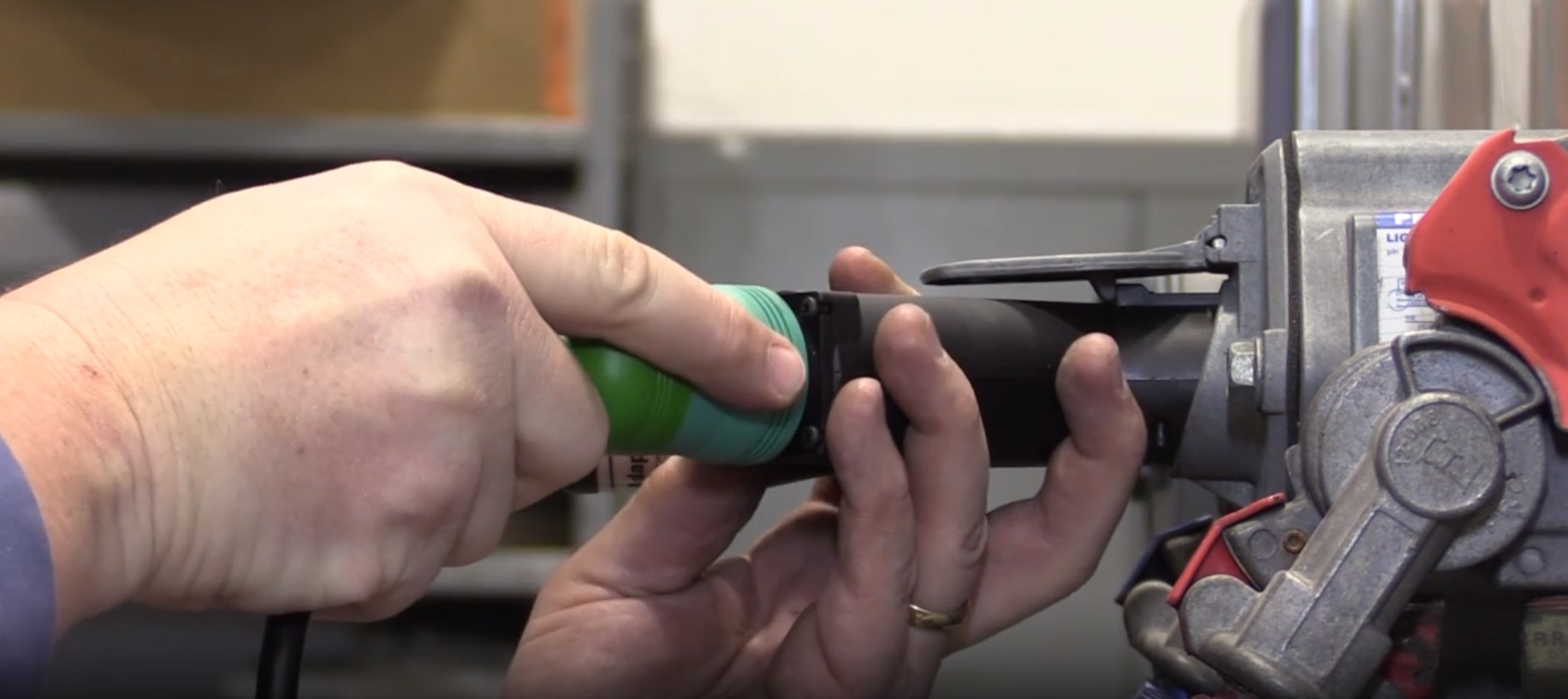Bosch is celebrating the 30th anniversary of the pioneering automotive anti-lock braking system (ABS), a landmark contribution to driving safety. Developed by Bosch and first introduced in 1978, ABS has been a major step forward for motorists and the automotive industry worldwide, and paved the way for electronic stability control systems.

Since Bosch introduced electronically controlled ABS to the automotive market, this groundbreaking technology has become the basis for all modern brake regulating systems. Today, nearly 75 percent of vehicles are fitted with ABS. Bosch systems such as the Electronic Stability Program (ESP) and the Traction Control System (TCS) that are based on ABS are now successfully embraced by the world’s motorists.
Today, Bosch is the largest supplier of ABS systems to the world’s vehicle manufacturers.
“ABS utilizes sensors at each wheel tied to a central computer to prevent the wheels from locking when braking hard, allowing drivers to brake safely in emergency situations,” said Rob Backode, group product manager for Bosch Braking Systems.
“A car fitted with ABS will brake effectively without locking the brakes and possibly skidding, allowing the driver to steer and keep the car under control even in sharp braking. The vehicle remains stable, and ABS really improves the way we drive.”
Bosch provides comprehensive technical and marketing support on ABS to installers, and the Bosch technical hotline used in conjunction with Bosch Diagnostics helps ensure that the vehicle receives expert attention and care.
“The electronically controlled ABS has been a truly revolutionary advance for motorists around the world. And Bosch is proud to have brought it to the automotive marketplace and to support it,” Backode said.
30 years of Bosch ABS – development milestones:
1936: Bosch is granted a patent for a “mechanism to prevent locking of the wheels of a motor vehicle.”
1970: ABS 1 prototypes perform all the required functions; however, the functional safety of the control unit is not yet sufficient
1978: Series production of first electronically controlled anti-lock braking system, ABS 2, installed in cars made by Mercedes-Benz and, shortly after, by BMW
1981: Delivery of 100,000th ABS; ABS now also available in commercial vehicles
1985: Bosch ABS is installed in U.S. vehicles for the first time.
1986: One million Bosch ABS delivered
1987: TCS, the traction control system for passenger cars, goes into series production
1989: The ABS 2E is the first to feature a control unit mounted directly on the hydraulic modulator
1992: 10 million Bosch ABS systems
1993: Series production of Bosch ABS 5.0
1995: Series production of ABS 5.3 (with micro-hybrid control unit) Introduction of ESP electronic stability program
1998: Bosch starts production of ABS 5.7
1999: 50 million Bosch ABS systems
2001: Series production of Bosch ABS 8
2003: 100 million Bosch ABS systems
2004: ABS becomes standard equipment in all 15 EU member states
2008: 30th anniversary of series production of ABS
For information on Bosch automotive aftermarket products, visit www.boschautoparts.com


